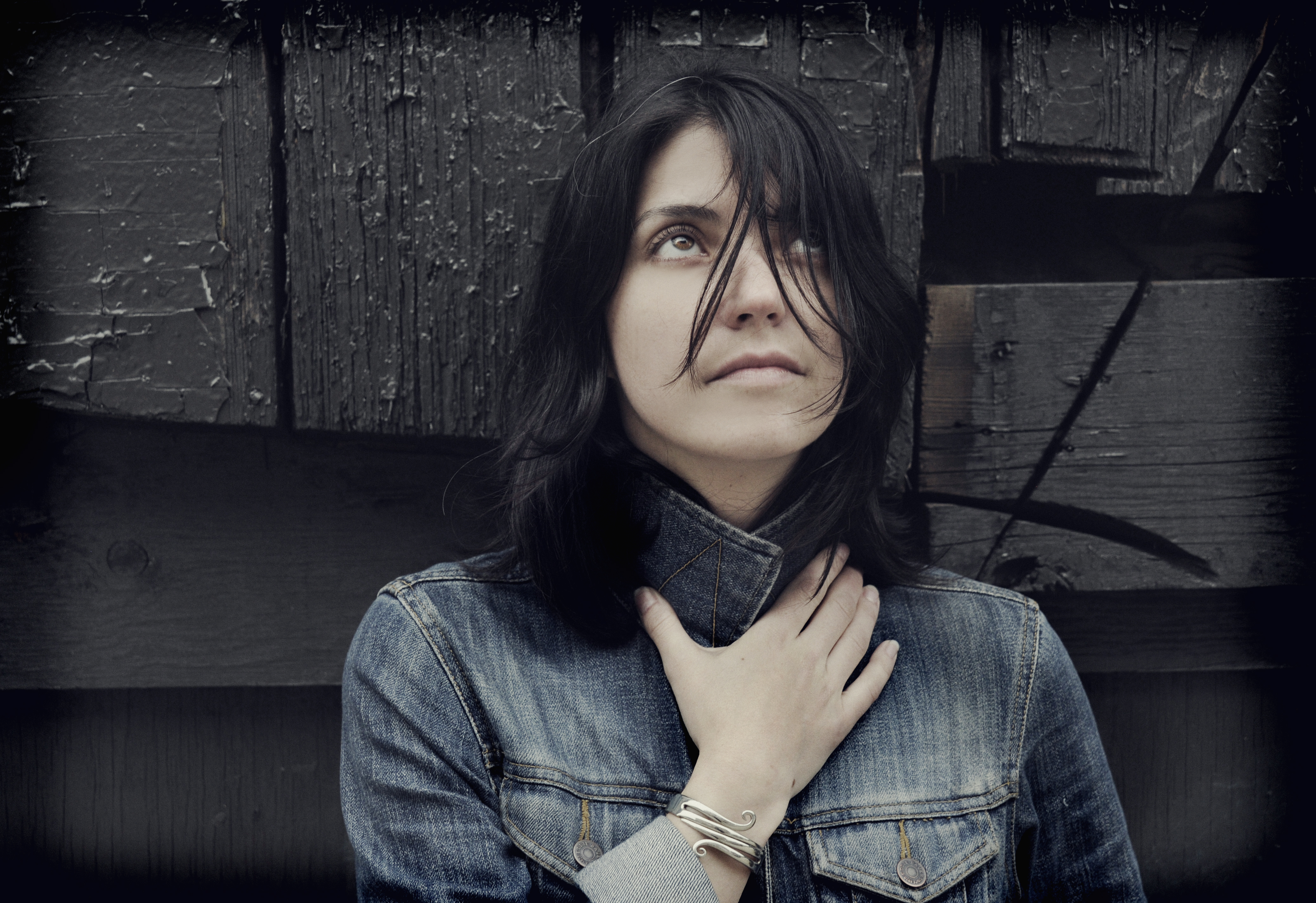Album Review: Sharon Van Etten, ‘Are We There’
Words by Scenewave Australia - Published on May 26, 2014
Words by Sam Weston
“They don’t make that kind of music anymore” is the sort of clichéd criticism dads sometimes make, despite my best efforts to convince mine otherwise. I’ve bought him loads of albums. He listens to them and nods his head. He says he likes them, but then puts them in his CD rack and never gets them out again.
Perhaps I’ll give him Sharon Van Etten’s fourth album, Are We There. I could tell him it sounds like Joni Mitchell. It doesn’t, of course, but it is a female singer-songwriter who pens devastating songs about doomed relationships, heartache and uncertainty. If listening to Chris Martin’s breakup – sorry, ‘conscious uncoupling’ – album is a bit like being slapped across the face with a damp, lukewarm flannel, listening to Van Etten’s is a barrage of punches to your gut.
Her 2012 breakthrough, Tramp, was a study in stark, melodic sombreness. Now, Van Etten helms her own production in a New Jersey studio with the assistance of Stewart Lerman (who’s worked with Antony and the Johnsons, St. Vincent and others). Two years on, the 33-year-old is still reflecting on her past, but there is a newfound assuredness in her tone and the musicianship behind it.
In a review, Pitchfork raised a good question about how you listen to the sprawling, guttural and masochistic third track Your Love is Killing Me. Like many of Van Etten’s songs, the track meditates on a ten-year relationship she had with a boyfriend who couldn’t bear to see her become a successful musician. “You tell me that you like it when our minds become diseased,” she drawls. The diatribe finishes with Van Etten promising to “stab her eyes out so she can’t see you”. A bit heavier than conscious uncoupling, you’ll agree.
The album gravitates around the breathtaking one-two gut punch of Tarifa and I Love You But I’m Lost. The former is a sun-kissed tale of Van Etten’s stint living in southern Spain with the partner who seems to have caused her so much pain. Tarifa is underscored by a bittersweet recollection of a better, but worse, place in her history. “I can’t remember anything at all,” she confesses. A gorgeous bass clarinet wafts through the verses. It is rare, as Chris Martin may know, for a songwriter to convey such vivid imagery and emotion with this consummate ease, without sounding forced. With hindsight, Van Etten removes herself and becomes the narrator. Regardless of how she may feel about her experiences, with every release, Van Etten sounds more comfortable looking back.
I Love You But I’m Lost is a more simple, earnest piano ballad. Every note sounds fragile, threatening to clunk out. Just as it does sigh to a halt, Van Etten’s weary voice drags the instruments along with it. As she repeats the title, each time she sounds more resigned to the fact of it.
For an album with such a simple pretence, the depth and diversity of songwriting here is quite staggering. Foreboding arrangements like You Know Me Well showcase the light-and-shade of recovering from a destructive relationship. Lead single Taking Chances and Our Love wander into focus on more experimental textures – Taking Chances in particularly seedily slinks into view from a dank kitchen at 3am after a particularly nasty argument.
Every Time the Sun Comes Up, the closing track, is arguably the best example of Van Etten’s evolution as a songwriter. In its plaintive, funereal march Van Etten sounds more at peace than ever. She sings, generously and gun-barrel straight, through your headphones or speakers, as if having an incredibly honest conversation with you. She even throws in a few jokes and rhyming couplets.
“I washed your dishes/ But I shit in your bathroom.”
“We broke your glasses/ But covered our asses.”
“People say I’m a one hit wonder/ But what happens when I have two?”
In a line from a song on Tramp, Van Etten admitted that sometimes it “hurt too much to laugh about it.” After the last track on Are We There, a brief outtake clip has Van Etten giggling gleefully when her headphones fall off as she records a vocal. It’s almost as if she’s reminding you that, though her songs may be bleak, in reality she’s still happy and good-humoured. The songs here speak volumes about Van Etten as a person.
I think my dad’s chief concern with the music I give him is that, while it has its merits, something he can’t quite put his finger on isn’t there. Something raw and instinctive – something that makes the songs sound personal, natural and honest. Sharon Van Etten seems determined to be authentic. Her words come from her heart – and, in Your Love is Killing Me, her stomach. Blended with majestic songwriting, this album is something unlike everything else being released today. They just don’t make this kind of music anymore.

